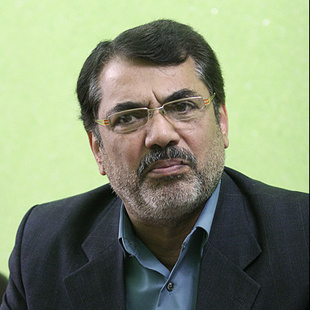Reasons for the Recent Iraqi Unrest

IRD: What was the reason behind the recent blasts in Iraq?
HR: Insecurity in Iraq is due to the existence of terrorist groups like Al-Qaeda, and the existence of political forces that do not believe in the process of democratization and who try to weaken the government through these operations so that they can replace them. This is the mindset behind some parties like the outlawed Baath party. Therefore, the only two possible groups responsible for the explosions are either the Baath party or Al-Qaeda. These are the main groups who believe in violence in order to reach their goals.
IRD: Bearing in mind these explosions, how do you assess the security status of Iraq?
Part of the insecurity in Iraq is the responsibility of terrorist groups and part of it the responsibility of politics. Unfortunately, some political forces use this insecurity as a political tool. This is used by most Sunni political groups and by the US itself, which is one of the main elements of insecurity in Iraq. Rumors are that the US even has its own Al-Qaeda in Iraq, which it uses whenever needed to spread insecurity. Therefore it can be said that a set of issues are involved in the insecurity process in Iraq.
IRD: Ayatollah Sistani and a number of other Shia clerics boycotted meetings with Iraqi officials and Parliament in protest of corruption in the country. How important do you think these boycotts are?
Mr. Sistani and clerics are the representatives of a vast group of people. Certainly the lack of services and administrative corruption has brought disappointment among people. This boycott is supposed to convey an important message to Iraqi officials and that is that they should serve their people and if they don’t, they will not have the support of the clerics. This outstanding move shows that clerics are aware and awake in Iraq. They not only have knowledge about the developments, but they also take positions and try to correct approaches as well.
IRD: Recently the issue of the PKK was raised again. In what situation is their case now? What decision did Iranian and Iraqi officials take concerning this terrorist group?
Their case is under pressure from two sources:
1- Iraqi forces who have reached a consensus that this group should leave Iraqi territory. They believe that no issue that puts relations with Iran under strain should exist between the two countries. The Iraqi government is honest about this issue, and it seems that their efforts are serious as well.
2- On the other hand, the West is trying to keep the structure of the PKK in order to later use it against Iran. This position taken by the West is an obstacle in the way of the Iraqi government in putting an end to this case. The other obstacle is the country which will host this group. Iraq is not able to hand them over to Iran because of the human rights agreements it has signed. Therefore, it is searching for a third country that can host members of this group when they leave Iraq. However no country has yet accepted hosting them. Even Western countries that supported these criminals are not willing to accept them. This shows that Western countries use everything as a tool and are not ready to deal with the consequences. Therefore the case of the PKK has reached a stalemate because of US disagreement and the lack of any third country that is receptive of this group. Even though the Iraqi government has on many occasions promised Iran to take a serious decision regarding this group, nothing has happened yet. It should be said that the Iraqi government is under pressure from within as well.
The Ashraf camp in Iraq is located in Khales province and occupies about 50 thousand hectares of farmland belonging to Iraqis. All the owners have taken their complaints to the Iraqi courts and the courts have issued warrants for the PKK to give them back their land. Therefore the government is obliged to implement the rulings of this court. To sum up, it should be said that the Iraqi government is under pressure from both internal forces, and Iran from the outside, to decide this case. However, due to the obstacles mentioned above, this case has remained closed so far.

